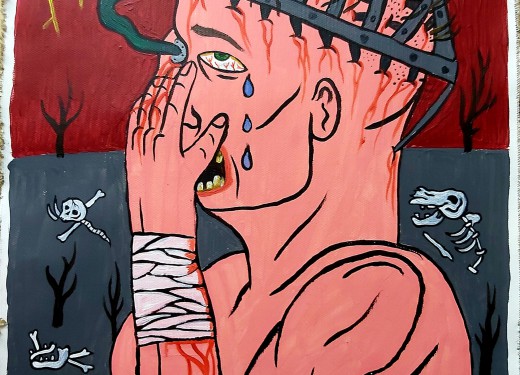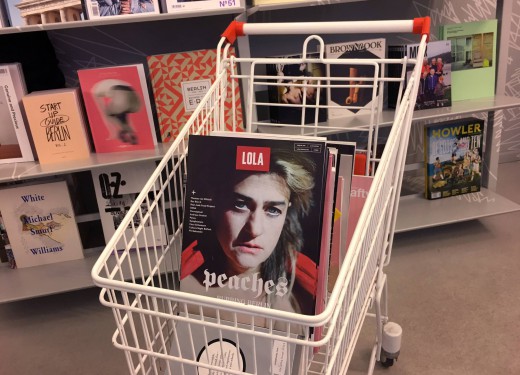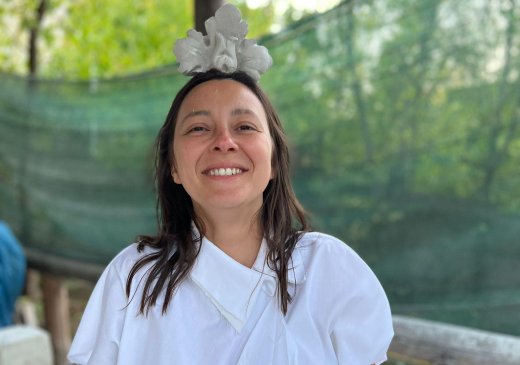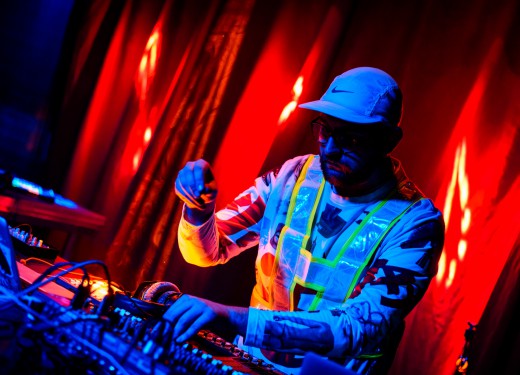
Calm, always smiling, with a ritualistic approach to music, Swiss musician and composer Nik Bärtsch is a thrilling individual. On the occasion of his concerts in Romania, I had the chance to talk with him several times about the different aspects of his music and the way he constructs a piece, but until now, never I had the chance to explore his concepts of reduction and repetition.
Fascinated about his organically interwoven textures from jazz, funk, new music and minimalism, I conducted the conversation towards his search for new and his dive into sound development.
*The interview was taken at and curtsy of the Smida Jazz Festival.
I try to very slowly develop everything in such a way that the new appears out of the work. Stravinsky said ”a composer looks for new material like an animal is looking for food”. It is a very intuitive process. But when I have it I try not to force it with my will, but very slowly analyze the potential and create a piece out of just one idea. It must be a very clear idea, for example, a pattern in 5 against a pattern in 7. I look closely at those little patterns and then I try to work with them until it develops into something where I hear that it doesn’t sound like before.
For example, if you are a scientist and you go in the woods to look for the animals you study how it moves, how it jumps, what does it eat. That’s how I find the pattern. I work and I find a pattern, and then I check it out what it does, how it moves, where does it have a certain spin that is interesting for the drums. I try to really not take the head off and put another on and make in it to mechanically. I try to understand it like a being..
I will combine with itself and see if it is interesting. Does it create a new meaning, a new interlocking? For example, it is a 7/8 and is in 4 and 3. So I have the 7 and I put the 3 against the 7, then you have 3 times the 7, and 7 times the 3. And then I have to try that out in reality to see if it is interesting, if it works in a certain way. Then I have the cycles and I already have a bigger form. Next, I maybe combine it two or three times and find an interesting drum beat and suddenly I have a much bigger form. The form I reached I may combine it with a harmonic development or with patterns that shift and suddenly I have almost a whole piece. The material may have parts in between where there are more freer parts where improvisation or groove development can intervene.
Usually, fist time when the new composition comes in the band we try it out to see if it works. Some do, for others we have to change registration, instrumentation or even change parts. Some of the pieces we already play for 15 years. And even form there it can evolve because we are starting to understand it in a very different way that was not possible in the beginning. When you have a complex cycle of 7 against 5, you first train it to be able to play it. Like joggling. But then, after a while, you see how it works and you start to think ”oh, what if I throw another ball, and then another”. And this is how pieces usually evolve.
Before we record something, we play it in the band, then in the club, then we take it on tours and only after this we record it. It is a very different strategy than saying ”we are avant-garde, we break with everything that was before, here is the new thing, next year here is so new thing”.
Of course. That's the idea of this music, that every member knows it so well that even in live playing things can happen that refresh the whole piece. It would be boring for us if everything would be planned. We have parts where this can happen, where somebody invents something or we, as a band, invent something and when this happens is like in martial arts, it is so intense and so nonintellectual. And that's the beautiful thing usually in music or performances, or sport, that you reach that level of surprise together.
That is one of the major things. You can change people and this music can also be played by other people even if I am not there, but the way that we play that together, this is essential. All these members are extraordinary players, but for this music you need to have the attitude that you serve the music and the group. We work and play as a community.
Meditation is a way of training focus, training to leave a lot away. When you compose and play this is essential. To leave things away you need to have focus that is not stiff but is relaxed. That's very difficult to train and in meditation you train exactly this.
Also, when you meditate you go out of the intellectual analysis, you go much more into the intuitive body knowing, this is not against thinking, it just has to do with trust more your musical body and that helps a lot in composing but mainly in playing and performing, to real be there.
Ronin is a thing that constantly develops. This is not just a band, is an idea, a concept, is a way of working together. As I already said, our way of working refresh itself. So, Ronin is always now and next.
Of course, I have other things that I do - my acoustic group ”Mobile”, that is more into classical chamber music; another project I have with a visual artist that brings the piano into a stage setting; my solo shows and my work as composer for other assembles.
For me, it is not just the music itself important but also the project in the community I do. For example, the club and the festival I founded along with other people are meant to be initiatives that create more platforms for other people and for an audience to experience other artists. So, these projects do not focus on my music but on other people’s music, for the community.
When you already made a name for yourself, I believe it is your responsibility to open up for young people especially. This is one of the reasons I have founded Ronin Rhythm Records. Here, I can offer support for young artists and help them to become more known and international.

We are listening to all sorts of music that is interesting. One specific quality of this band is that everybody is open and not kind of hermetic, or very ideological, about music. It is not about what is allowed or not, is more where do we find the quality, it doesn't matter if it is modern, classical, rock or folk music, we are looking for the quality in music, the uniqueness of the bands, the individual ways of how people express themselves. A lot of these qualities you find in different styles. When you hear a live performance, it doesn't matter where it comes from, is more about how is done, how dynamic it is. How does it seduce you!
For me this has nothing to do with a style or a certain time, it has to do with the people who play it, with the audience, with a certain scene, with a way of understanding musicianship.
Very often people are kind of negative against the music they don't know so much about. Maybe that is not their fault because you can’t now everything. But, if you consider yourself a musician with open ears, then you can at least have the respect and say ”I don't know so much about it and would be happy to hear things that are from the really good people who developed that style”.






